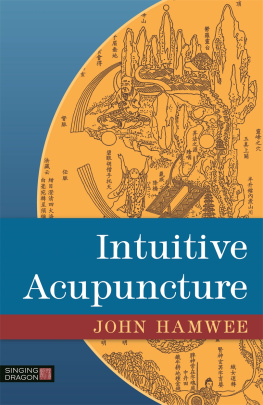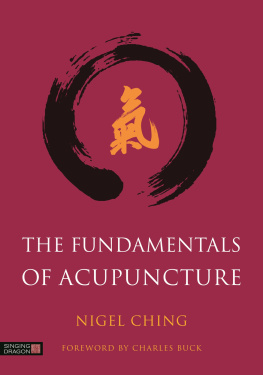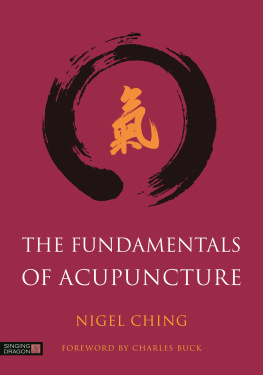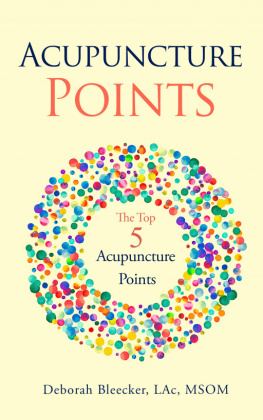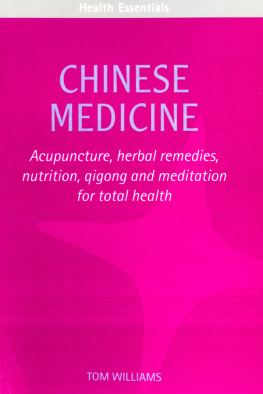Pharm Tao - Acupuncture for A Hundred Diseases in Verse (Bai Zheng Fu) (Journal of Chinese Herbal Medicine and Acupuncture)
Here you can read online Pharm Tao - Acupuncture for A Hundred Diseases in Verse (Bai Zheng Fu) (Journal of Chinese Herbal Medicine and Acupuncture) full text of the book (entire story) in english for free. Download pdf and epub, get meaning, cover and reviews about this ebook. year: 2008, genre: Children. Description of the work, (preface) as well as reviews are available. Best literature library LitArk.com created for fans of good reading and offers a wide selection of genres:
Romance novel
Science fiction
Adventure
Detective
Science
History
Home and family
Prose
Art
Politics
Computer
Non-fiction
Religion
Business
Children
Humor
Choose a favorite category and find really read worthwhile books. Enjoy immersion in the world of imagination, feel the emotions of the characters or learn something new for yourself, make an fascinating discovery.

Acupuncture for A Hundred Diseases in Verse (Bai Zheng Fu) (Journal of Chinese Herbal Medicine and Acupuncture): summary, description and annotation
We offer to read an annotation, description, summary or preface (depends on what the author of the book "Acupuncture for A Hundred Diseases in Verse (Bai Zheng Fu) (Journal of Chinese Herbal Medicine and Acupuncture)" wrote himself). If you haven't found the necessary information about the book — write in the comments, we will try to find it.
Pharm Tao: author's other books
Who wrote Acupuncture for A Hundred Diseases in Verse (Bai Zheng Fu) (Journal of Chinese Herbal Medicine and Acupuncture)? Find out the surname, the name of the author of the book and a list of all author's works by series.
Acupuncture for A Hundred Diseases in Verse (Bai Zheng Fu) (Journal of Chinese Herbal Medicine and Acupuncture) — read online for free the complete book (whole text) full work
Below is the text of the book, divided by pages. System saving the place of the last page read, allows you to conveniently read the book "Acupuncture for A Hundred Diseases in Verse (Bai Zheng Fu) (Journal of Chinese Herbal Medicine and Acupuncture)" online for free, without having to search again every time where you left off. Put a bookmark, and you can go to the page where you finished reading at any time.
Font size:
Interval:
Bookmark:
Acupuncture for A Hundred Diseases in Verse
( Bai Zheng Fu)
(Journal of Chinese Herbal Medicine and Acupuncture,
Volume 1, Number 12, 2008)
PharmTao.com (Editor)
Copyright 2008 by PharmTao.com
All rights reserved. No parts of this publication may be reproduced or utilized, stored in a retrieval system, or transmitted, in any form or by any means, electronic or mechanical, including photocopying, recording, or otherwise, without prior written permission from the copyright owner.
The information in this publication is true and complete to the best of our knowledge. The author disclaims any liability in connection with the use of this information. The information provided is not intended for diagnosis, or to treat, cure or prevent any diseases, conditions or symptoms, or to endorse any herbal products. Personal directions and use of herbs should be provided by qualified herbalists or health professionals.
Publishers Website: http://www.pharmtao.com
More information on Chinese medicine: http://www.pharmtao.com/blog2
Learning the Best Parts of Traditional Chinese Medicine
- Introduction of the Traditional Chinese Medicine ClassicsBy Dr. Pharm Tao
If you get to know the authentic traditional Chinese medicine (TCM), you would be amazed by its profound understanding of nature and the human body, the exquisite observation of physiology and pathology, the variety of its diagnosis and therapeutic methods, and its powerful healing effects. To learn, understand, and practice TCM well, one of the most important methods is learning the classics that were written in ancient China.
These precious classics recorded generations of experiences. They have been polished during hundreds or even thousands of years, and proven useful by billions of people. These classics often make readers admire the incomparable wisdom of medicine in the human history. Because of historical reasons, the development of TCM has been very slow and sometimes even stopped in the recent two centuries, and many priceless experiences are being lost. Such situation makes these ancient classics even more valuable.
These traditional Chinese medicine classics were written in ancient Chinese language, which is very different from todays Chinese language. The grammar has been totally changed today. Many characters and phrases are no longer in use. These reasons make the TCM classics very hard to understand even by most of the general Chinese people nowadays. This may be one of the reasons that many of these valuable classics are not well-known outside China. Here we try to bridge this gap and present the authentic and best parts of traditional Chinese medicine to the world. Many of the TCM classics in this series have never been published in English in the West before and here we provide the first English translation of these valuable classics.
Preface
By Dr. Pharm Tao
In ancient China, an important and commonly used way to study and practice traditional Chinese medicine (TCM) is through learning and memorizing Chinese medicine verses. These verses were written by very experienced and famous physicians, and revised again and again in many generations. They are brief but written in a smooth and beautiful language, and relatively easy to remember. More importantly, these verses extracted the most valuable experience and the most important knowledge in practicing Chinese medicine. Even today, many clinicians in China still use these verses as important references to help them solve many difficult medical problems.
Acupuncture for A Hundred Diseases in Verse (known as Bai Zheng Fu in Chinese) summarizes the experience of how to choose the most effective acupuncture points ( acupoints ) for the treatment of about 100 diseases. These diseases include twenty-eight ailments in the head and face, six diseases in the neck and throat, six diseases in the shoulder and back, seven gynecological diseases, one pediatric disease, five infectious diseases, and forty-three diseases in other categories such as psychological problems. Totally 156 acupuncture points are used for these diseases.
A broad range of diseases are covered, from complicated diseases such as diabetes to small problems such as twitching eyelids. Solutions for some of the health problems are hard to find elsewhere in common books, such as deafness caused by anger and nightmares.
This verse is one of the most popular acupuncture verses in the history of Chinese medicine. It was first recorded in Wu Gaos book A Collection of Outstanding Treatises in Acupuncture and Moxibustion (Zhen Jiu Ju Ying in Chinese) in the Ming Dynasty (1529). It was then included in another well-known Chinese medicine classic, The Compendium of Acupuncture and Moxibustion (Zhen Jiu Da Quan in Chinese) by Jizhou Yang in the Ming Dynasty (1601). This verse has been reprinted for hundreds of years and has become a must-learn in Chinese medicine education in China. It is included in the acupuncture textbook used by all of the TCM colleges in China.
In traditional Chinese medicine, the secret of fast healing is not in applying too many acupuncture points or herbs, but in using the right acupoints or herbs on the right disease, even if only a few of acupoints or herbs are used. It was recorded that the ancient magic doctor Tuo Hua of the Han Dynasty, usually only used a few herbs or a few acupoints , but achieved excellent results. This is one of the reasons that he has been called the magic doctor in Chinese history.
Similarly, Acupuncture for A Hundred Diseases in Verse suggests only a few acupuncture points to be used for each disease. This feature really represents the essence of Chinese medicine.
This classic provides the best prescriptions of acupuncture points for healing health problems including but not limited to: anger, blurred vision and other eye problems, cough, craziness and other psychological problems, deafness, diabetes, depression, dysentery, edema, epidemic febrile diseases, epilepsy, facial paralysis, goiter, headaches and migraines, hemiplegia , hemorrhoids, hypochondriac pain, indigestion, infertility, itching, leukorrhea , loss of voice, malaria, mastitis, menstrual disorders, nightmares, nocturnal emission, nosebleeds, stuffy noses, nasal polyps and other nose problems, numbness, palpitation and other heart problems, rectal prolapse , rashes and other skin diseases, ringing in the ears (tinnitus), sadness, scrofula, sore throat, spasms, stiff neck, tongue problems, toothaches, tuberculosis, twitching eyelids, urination problems, and vomiting.
Acupuncture for A Hundred Diseases in Verse ( Bai Zheng Fu)
Recorded by Wu Gao , the Ming Dynasty (1529),
A Collection of Outstanding Treatises in Acupuncture and Moxibustion
Translated by Dr. Pharm Tao
Here are the acupoint prescriptions for a hundred diseases,
Learn it carefully.
The acupoint Xinhui * (GV 22),
Is connected to Yuzhen (BL 9),
Patients with headaches,
Can be treated by gold needles.
Inside acupoints Xuanlu (GB 5) and Hanyan (GB 4),
Migraines can be stopped;
Around acupoints Qiangjian (GV 18) and Fenglong (ST 40),
Intense headaches can be blocked.
Facial edema,
Would need Shuigou (GV 26) and Qianding (GV 21);
Deafness caused by anger,
Depends on Tinghui (GB 2) and Yifeng (TH 17).
For itching on the face,
Yingxiang (LI 20) can be selected;
For ringing in the ears,
Tinghui (GB 2) can be chosen.
Oh, blurred vision,
Zhizheng (SI 7) and Feiyang (BL 58);
Oh, yellow sclera,
Yanggang (BL 48) and Danshu (BL 19).
Pterygium and canthal redness,
Try at places of Shaoze (SI 1) and Ganshu (BL 18);
Weeping eyes,
Puncture at locations of Linqi (GB 15) and Touwei (ST 8).
Dim vision,
Promptly look for Zanzhu (BL 2) and Sanjian (LI 3);
Next pageFont size:
Interval:
Bookmark:
Similar books «Acupuncture for A Hundred Diseases in Verse (Bai Zheng Fu) (Journal of Chinese Herbal Medicine and Acupuncture)»
Look at similar books to Acupuncture for A Hundred Diseases in Verse (Bai Zheng Fu) (Journal of Chinese Herbal Medicine and Acupuncture). We have selected literature similar in name and meaning in the hope of providing readers with more options to find new, interesting, not yet read works.
Discussion, reviews of the book Acupuncture for A Hundred Diseases in Verse (Bai Zheng Fu) (Journal of Chinese Herbal Medicine and Acupuncture) and just readers' own opinions. Leave your comments, write what you think about the work, its meaning or the main characters. Specify what exactly you liked and what you didn't like, and why you think so.

